8 Common Feng Shui Property Problems Even For People Who Don’t Believe In It (Yes, It May Affect The Next Buyer)
January 3, 2023
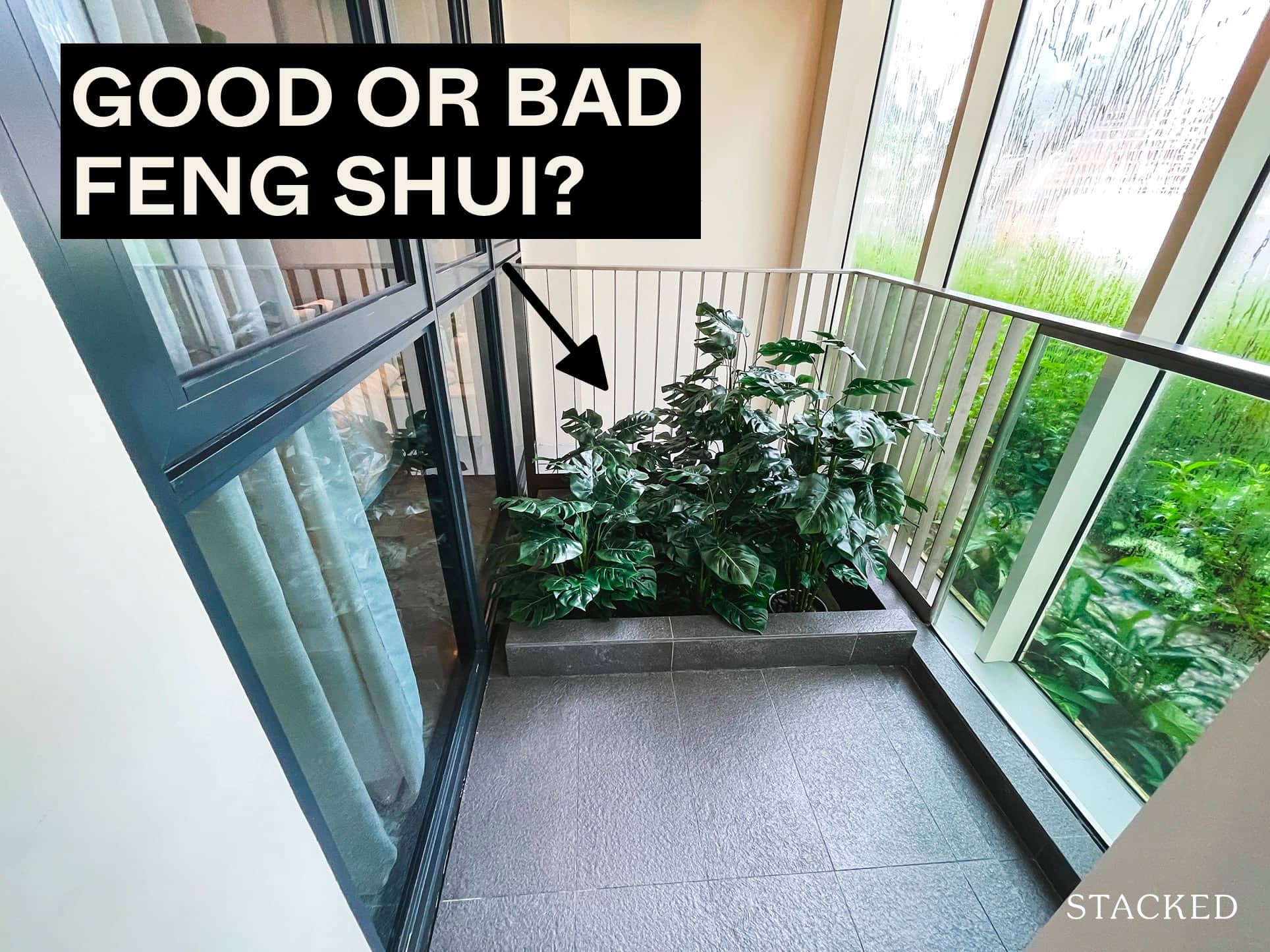
Whether you roll your eyes at Feng Shui, or you’re a hardcore believer, it still matters if it isn’t going to be your forever home. Regardless of your views, a future buyer – or even a tenant – may care about this element of your housing. So even if you aren’t into Feng Shui, take note of a few qualities that could impact your future resale value:
So many readers write in because they're unsure what to do next, and don't know who to trust.
If this sounds familiar, we offer structured 1-to-1 consultations where we walk through your finances, goals, and market options objectively.
No obligation. Just clarity.
Learn more here.
How much does Feng Shui matter?
From word on the ground, most realtors have said that Singaporean buyers are overwhelmingly practical. Most will not turn down a well-priced home with a good location, just based on “bad Feng Shui,” or minor issues like unlucky address numbers (i.e., unit 4-44). We’ve done a whole investigation on property superstitions if you’re curious enough to find out more.

As an example, one realtor pointed out the units at Block 7B Commonwealth Avenue. These flats are right next to the Shuang Long Shan Cemetery. According to most Feng Shui beliefs, homes should not be located within 500 metres of a graveyard; and yet the realtor pointed out that 4-room flats there are currently listing for around $850,000. The “bad Feng Shui” seems to matter a lot less, when you’re a three-minute drive from Holland V.
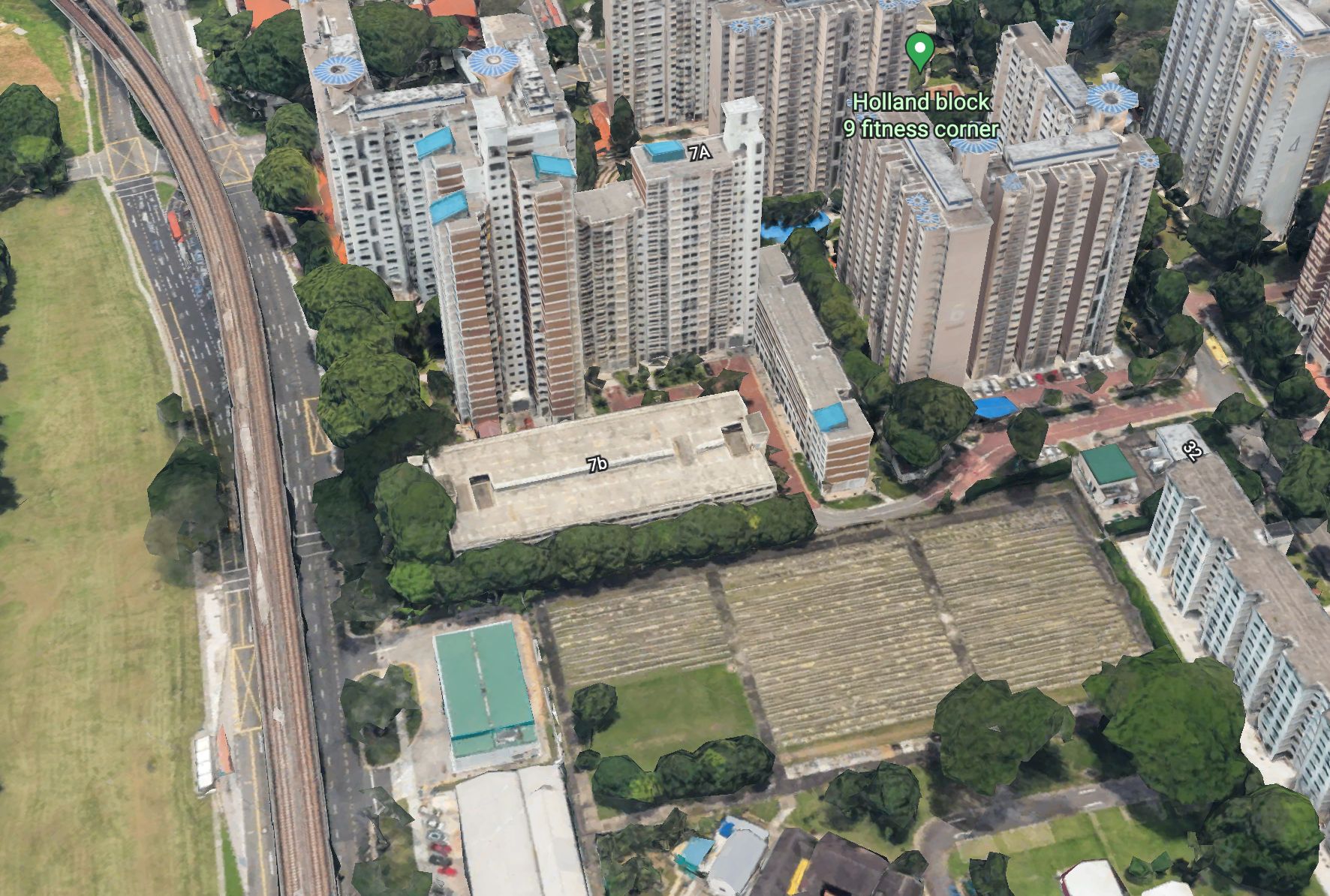
Another realtor says that most buyers who believe in Feng Shui will undertake their own renovations to “make it work.” He noted that these days, most interior designers know how to conceal negative features – such as beams above beds – with clever positioning, partitions, or false ceilings. As such, bad Feng Shui is rarely a dealbreaker. At most, it just means potentially higher renovation costs for a buyer.
Ultimately, the consensus is that good Feng Shui does help – but Feng Shui is just one of many factors that buyers look for. Among Singaporeans, it’s also rarely the biggest factor.
It could, however, act as a tiebreaker when a buyer or tenant is comparing against close alternatives.
Feng Shui red flags to avoid
We won’t be addressing certain interior elements such as the placement of mirrors or water features. Those are issues that a future buyer can easily change. Rather, we’ll look at the permanent elements that are often considered bad Feng Shui. These are:
Table Of Contents
- 1. Units with long and narrow hallways
- 2. A front door that aligns perfectly with the back door
- 3. Centrally located staircases, or stairs directly facing the front door
- 4. The property is at a T-junction, particularly if it’s shoehorned toward the tip of the junction
- 5. A cul-de-sac (end of the street) location is a Fengshui negative
- 6. Stay at least 500 metres from strong yin and yang-aligned locations
- 7. Avoid buildings with sharp, triangular structures or angles
- 8. Fengshui believers may not consider planter boxes a drawback
1. Units with long and narrow hallways
By coincidence, these are also disliked by homeowners in general. Long and narrow hallways are wasted square footage: you can’t use them for anything other than getting to another room. They also tend to restrict natural light and ventilation.
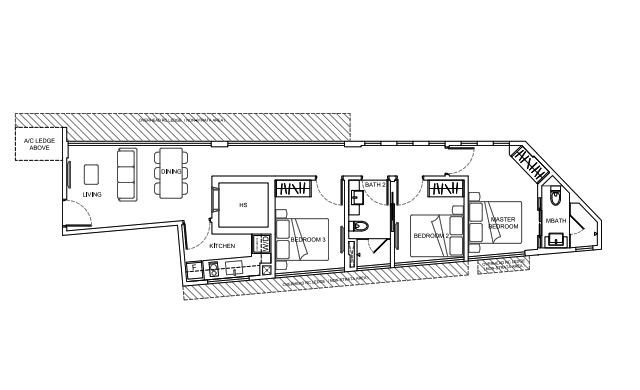
Newer condo units tend to be built using a dumbbell layout: the living room is used as the adjoining space between the bedrooms, thus eliminating the need for hallways altogether. Check out some of our Stacked reviews, where we’ll usually highlight whether a unit uses this type of layout.
2. A front door that aligns perfectly with the back door
It’s rare for non-landed units to have a back door, so this mostly applies to landed properties; but do note that some old walk-up apartments have a second door that leads to a corridor or landing on the opposite side (this may count as a back door).
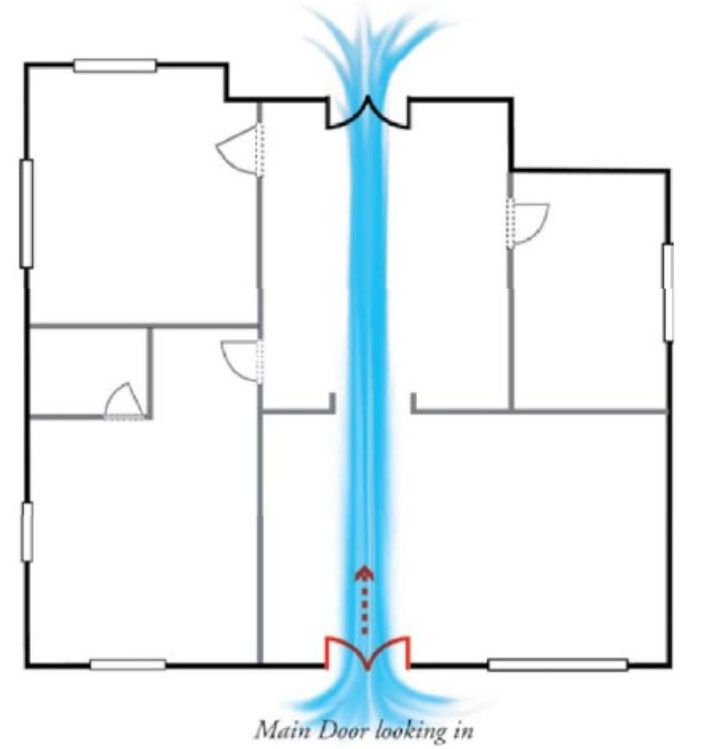
The worst layout from a Feng Shui perspective is a straight (or almost straight) line from the front door, to the living room, and out through the back door. Fortunately, this is a rare layout anyway; but if you have this, you may want to consider a small partition to break up the direct line.
3. Centrally located staircases, or stairs directly facing the front door
Most Feng Shui believers would rather the staircase be off to the side, rather than smack in the centre of the unit.
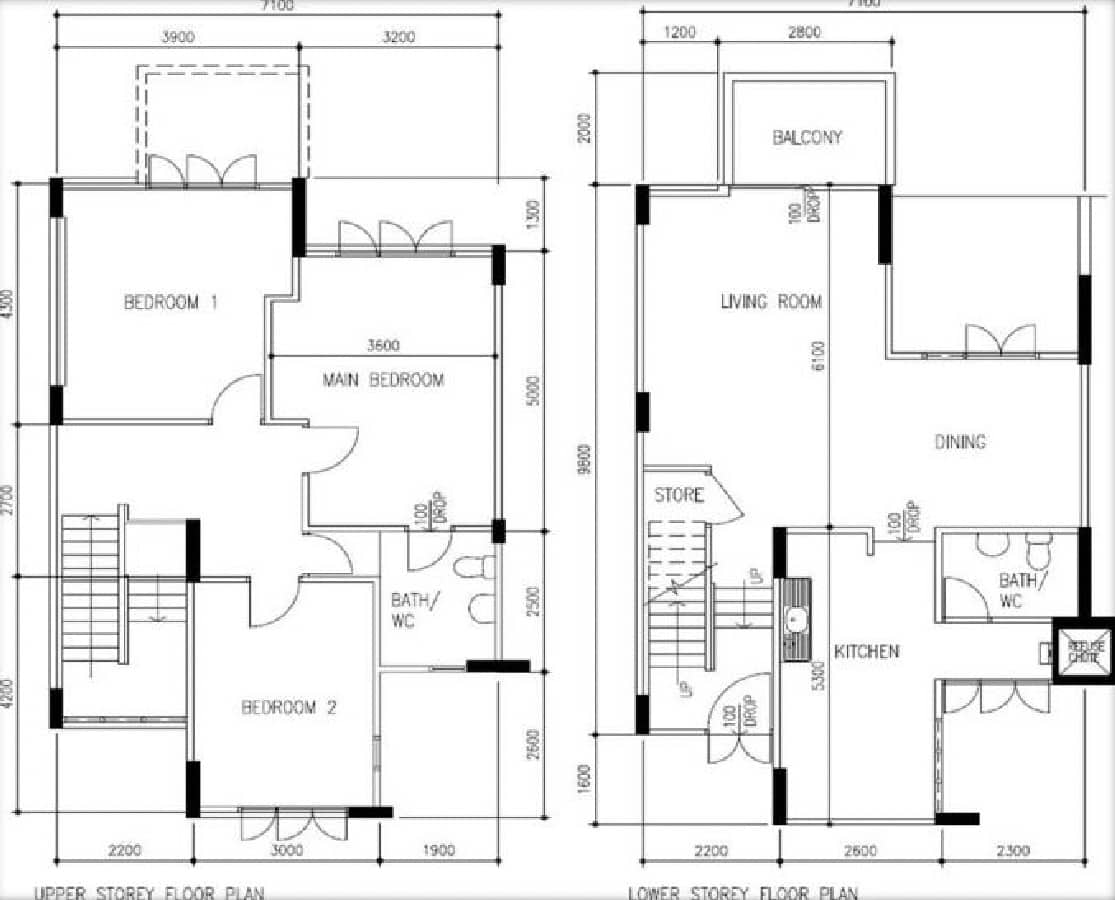
Likewise, there are a few double-storey non-landed units where you can see the staircase the moment you open the main door – this is less preferable than if the stairs faced the door side-on.
There isn’t much you can do to correct this, so keep it in mind from the moment you buy.
4. The property is at a T-junction, particularly if it’s shoehorned toward the tip of the junction
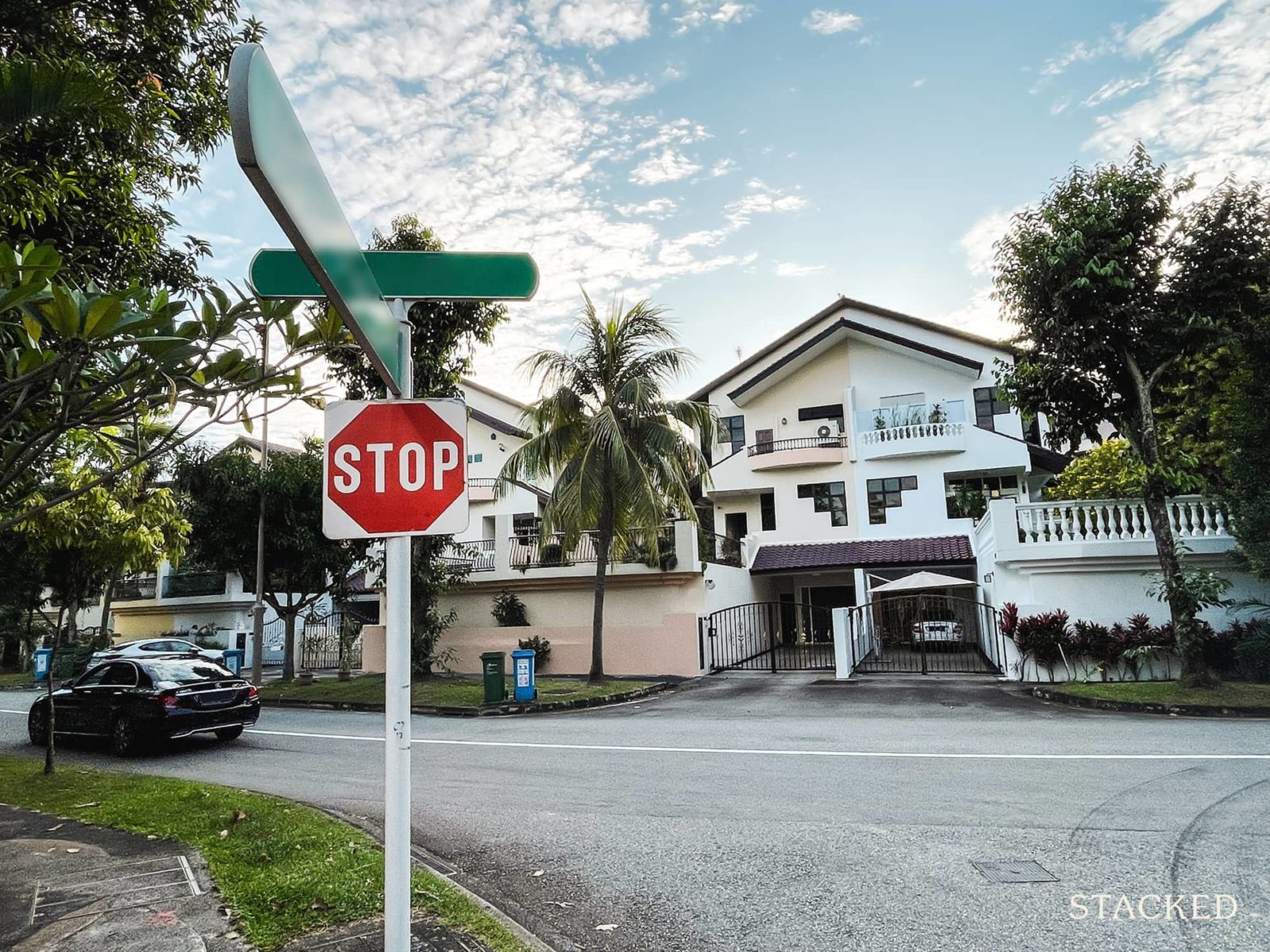
By coincidence, this is also undesirable for non-believers, albeit for different reasons. From a conventional perspective, a unit pressed up against a T-junction is closer to traffic, and more likely to see congestion or noise pollution.
For non-landed properties, a stack pressed up against a T-junction – especially if it ends up with a triangular shape – may end up having irregular corners (i.e., non-square or non-rectangular rooms), which are disliked even for regular interior design considerations.
For Feng Shui believers, the reason is related to energy flows, and homes on a T-junction are believed to introduce higher risks and unpredictability to the residents’ lives.
5. A cul-de-sac (end of the street) location is a Fengshui negative
This is where Feng Shui believers and non-believers may have conflicting preferences.
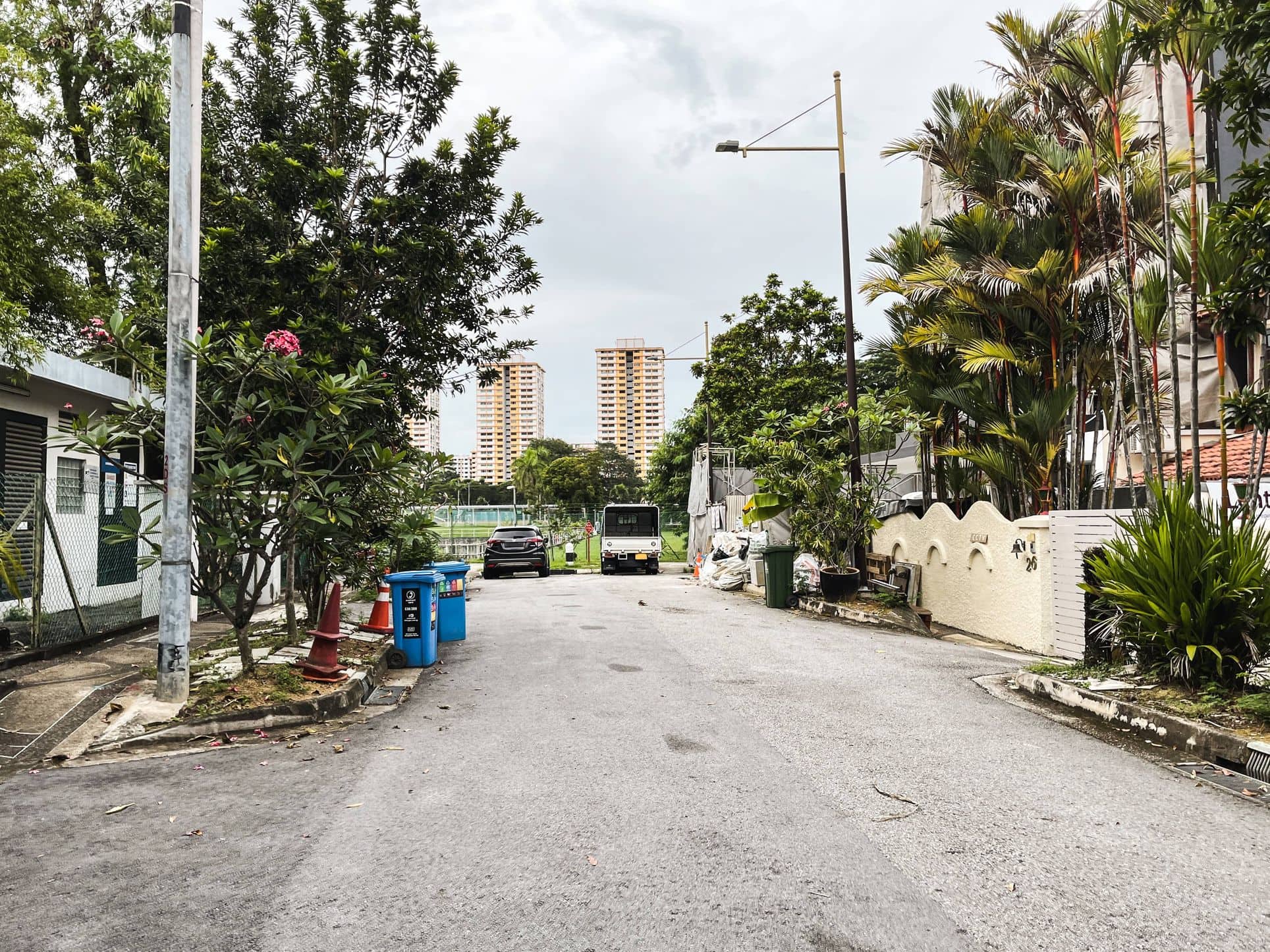
Many home buyers we’ve met prefer cul-de-sacs, as they feel it’s more private or there’s less traffic. It’s also considered safer for children or pets, as it allows them to play or walk around the front of the property with fewer interruptions from passing cars.
For Feng Shui believers, however, a cul-de-sac is almost always considered a negative; it’s a location where stale and chaotic energy wells up. For landed homes, that may mean some extensive landscaping or gardens to mitigate the bad energy.
6. Stay at least 500 metres from strong yin and yang-aligned locations
Feng Shui believers don’t like locations with an excessive “yin-aligned” energy, and this includes graveyards, columbaria*, and hospitals.
The avoidance of hospitals may coincide with non-Feng Shui-related reasons; such as simply wanting to avoid the sound of ambulance sirens, or the heavy traffic that hospitals attract.
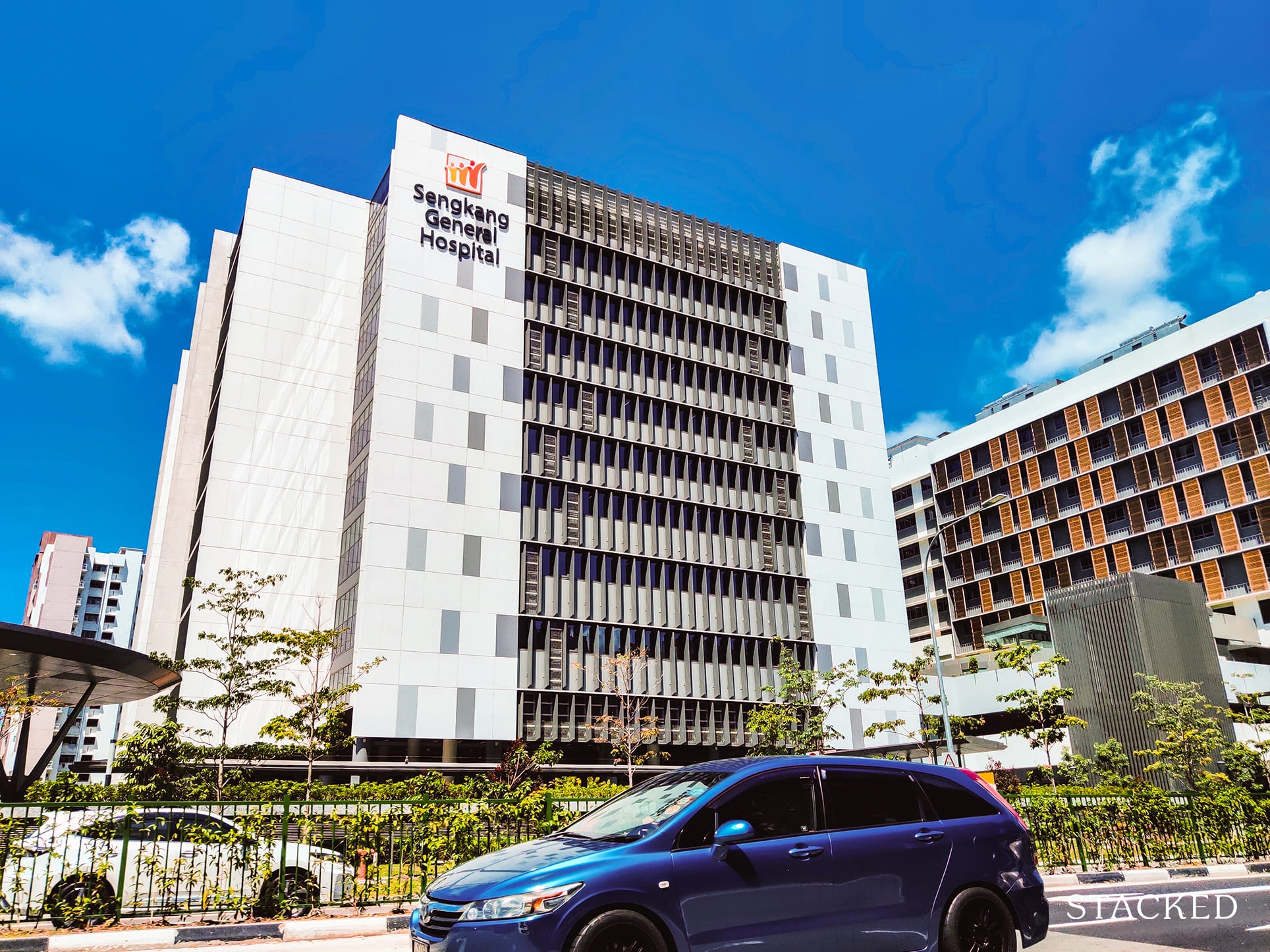
Nonetheless, this may run at cross-purposes for landlords: hospitals tend to employ significant numbers of foreign workers and are good catchment areas for tenants. As such, landlords may want to consider the trade-off of “bad Feng Shui.”
Also disliked are locations with strong “yang-aligned” energy, and these are broadly in line with what non-believers think as well. These locations are busy roadways, prisons, and petrol stations.
Although we would say that Parc Komo, located near Changi Prison, is one of the most affordable freehold condos in Singapore; it’s overly maligned for that one detail (there is virtually no drawback to being near Changi prison short of the psychological).
*A note on something we often have to point out: a columbarium is not a crematorium! There is no smoke from a columbarium.
7. Avoid buildings with sharp, triangular structures or angles
This may be related to why some Feng Shui believers avoid certain places of worship; structures such as steepled roofs and pointed towers are best located far from the home. These “poison arrow” structures can include certain building design features, such as diamond-patterned windows or facades.
While these also apply indoors (e.g., certain sharp corners in the home), those are less of an issue as renovations can fix that. Features outside of your home, which can include tall and pointed buildings, are elements that can’t be changed.
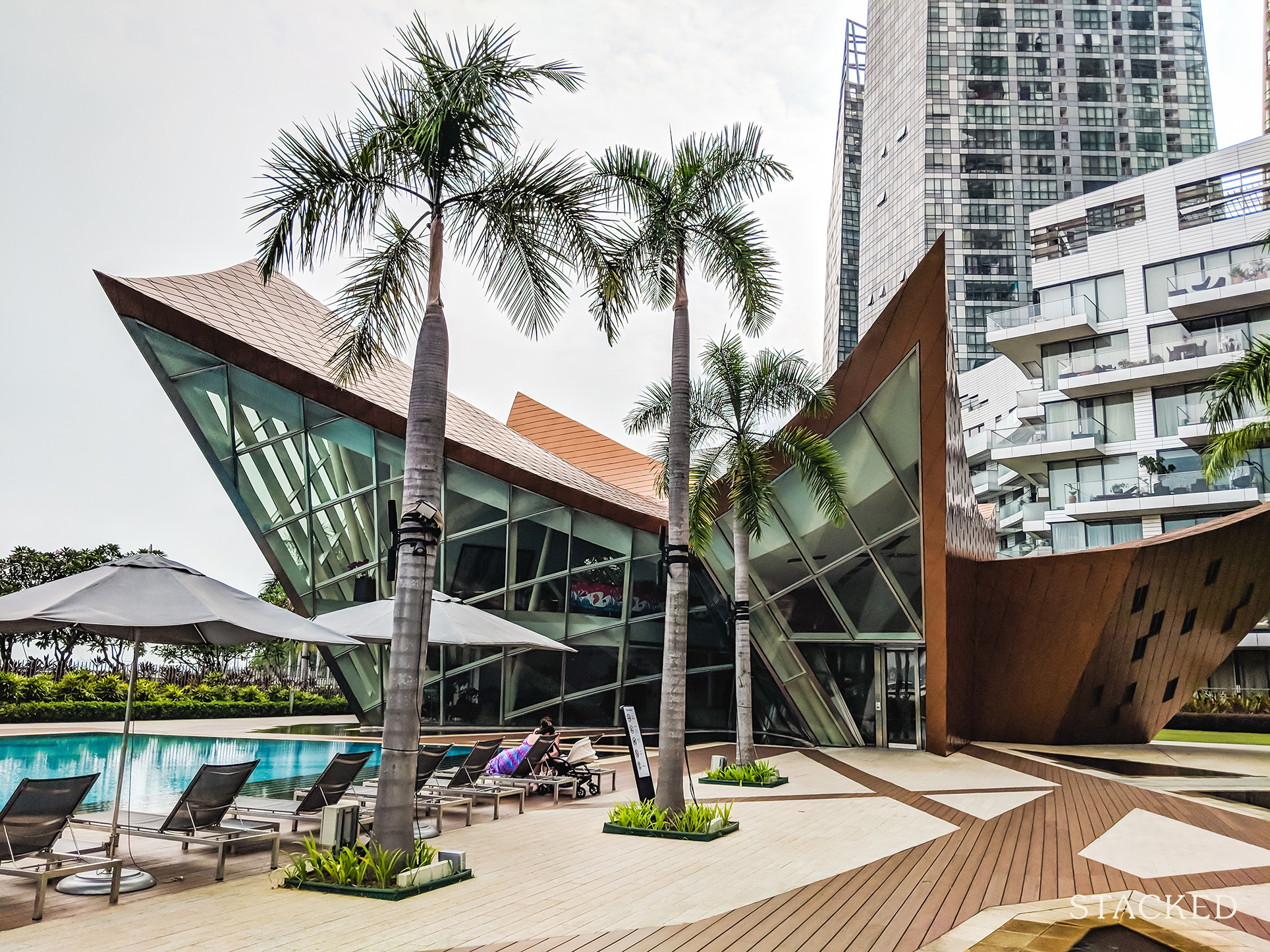
This principle includes avoiding homes where a much taller building is located right next door, or across the road. This specific belief does match conventional home buyer preferences, as most people don’t want to live close to much taller structures (it’s more likely to impede the view and “loom” over your property).
On a practical basis, however, Singapore is a tight-packed urban environment; and you are going to have a hard time finding a property with no tall or sharply pointed structures nearby. You may have to just settle for the one furthest from such features.
8. Fengshui believers may not consider planter boxes a drawback
Some Feng Shui believers use plants to introduce elements of life and compassion into the unit; and this may be one of the ways they mitigate bad Feng Shui (e.g., plants near the front door may help if the home is in a cul-de-sac, as in point 5).
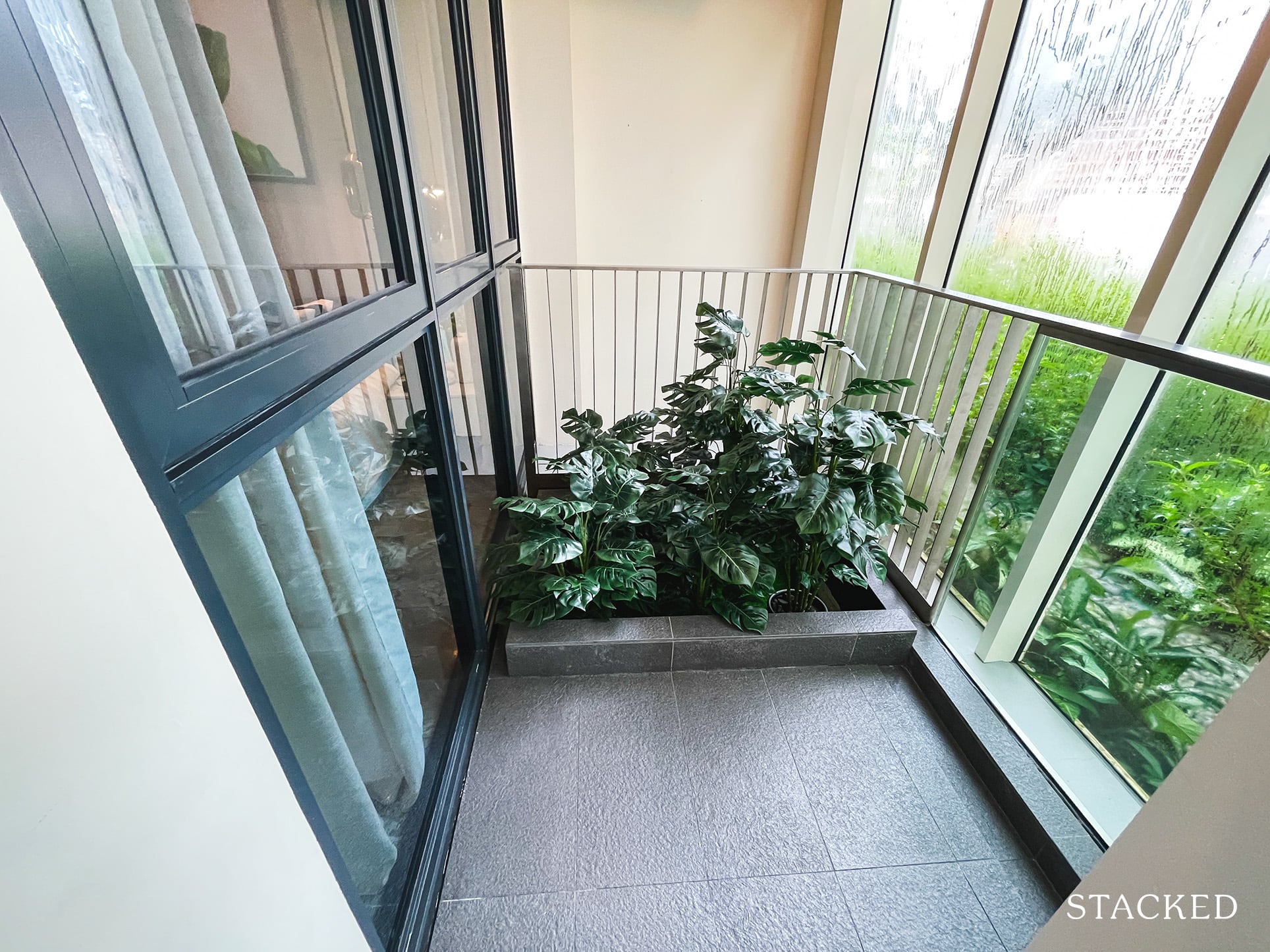
Condo units with planter boxes allow for a wider variety of plants; in some cases, these plants can be used to minimise bad Feng Shui (e.g., another tall pointed building across the road, or a hospital).
This runs contrary to some conventional preferences. Most home buyers today dislike planter boxes, which they see as taking up unnecessary square footage; but keep in mind a Feng Shui believer may see no disadvantage in it.
Developers do think about Feng Shui too
It’s not just the odd buyer who considers Feng Shui. Many local developers, whether they believe in it or not, do at least give it some consideration.
You’ll notice, for instance, that fewer condos in Singapore have units with front doors directly facing the elevators; this is partly out of recognition of Feng Shui beliefs. Duo Residences, in the Bugis area, was built with a heavily curved exterior to mitigate the pointed, triangular “arrow” formed by The Gateway nearby (see point 7).
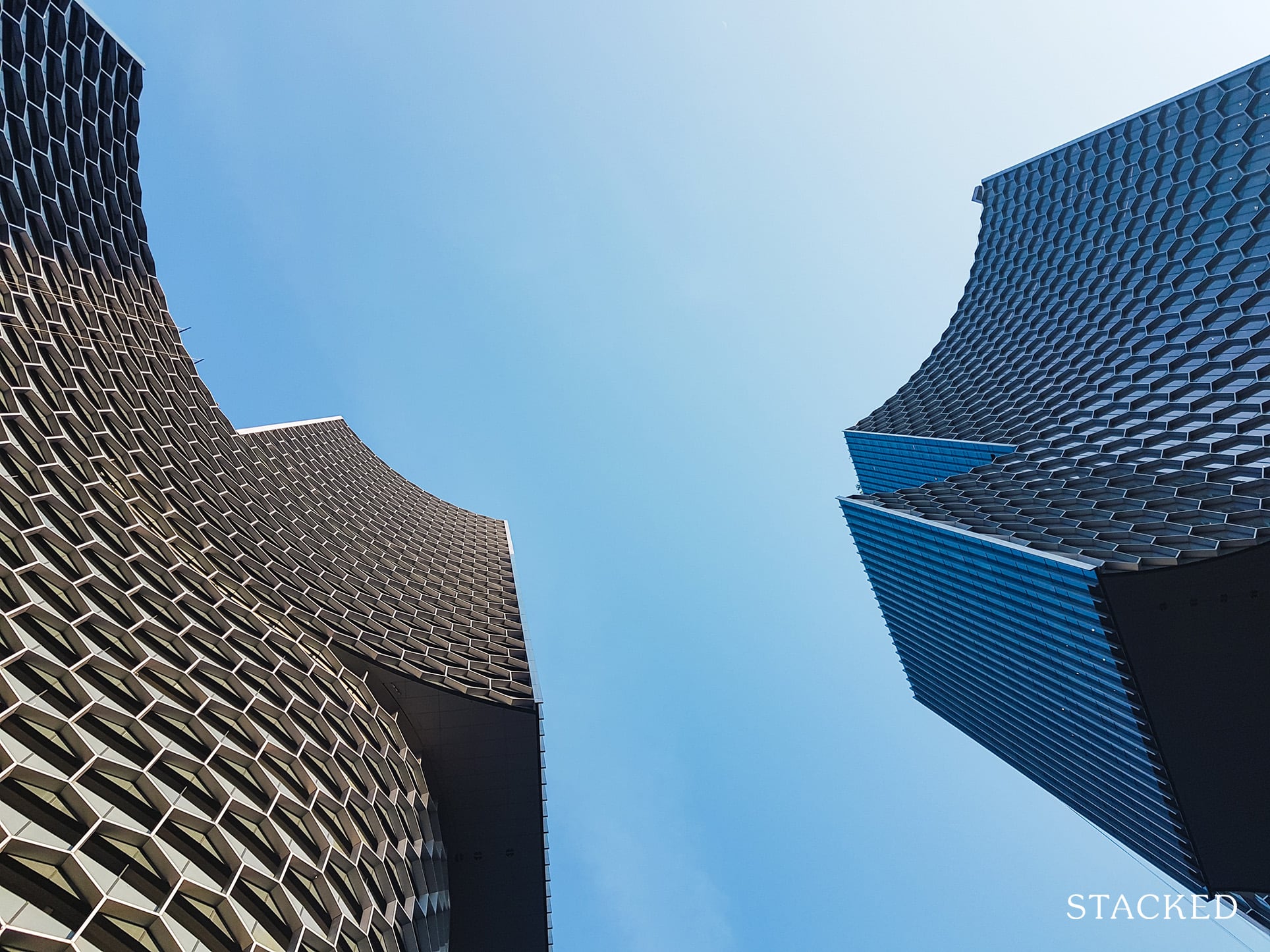
The general stance toward good Feng Shui seems to be a “may as well” attitude. If it’s bad Feng Shui, it might appeal only to non-believers; but if it’s good Feng Shui, it can appeal to believers and non-believers alike.
So where possible, it could make sense to compromise in the direction of better Feng Shui. It’s worth a thought when you’re picking your next property. For other details like location and price, you can check out a detailed rundown of new and resale properties alike on Stacked.
At Stacked, we like to look beyond the headlines and surface-level numbers, and focus on how things play out in the real world.
If you’d like to discuss how this applies to your own circumstances, you can reach out for a one-to-one consultation here.
And if you simply have a question or want to share a thought, feel free to write to us at stories@stackedhomes.com — we read every message.
Frequently asked questions
How does Feng Shui affect property value in Singapore?
What are common Feng Shui problems to look out for in a property?
Are cul-de-sacs considered bad Feng Shui for homes?
Why should I avoid properties near T-junctions according to Feng Shui?
Can interior features like planter boxes impact Feng Shui?
Do developers consider Feng Shui when designing buildings?
Ryan J. Ong
A seasoned content strategist with over 17 years in the real estate and financial journalism sectors, Ryan has built a reputation for transforming complex industry jargon into accessible knowledge. With a track record of writing and editing for leading financial platforms and publications, Ryan's expertise has been recognised across various media outlets. His role as a former content editor for 99.co and a co-host for CNA 938's Open House programme underscores his commitment to providing valuable insights into the property market.Need help with a property decision?
Speak to our team →Read next from Property Trends
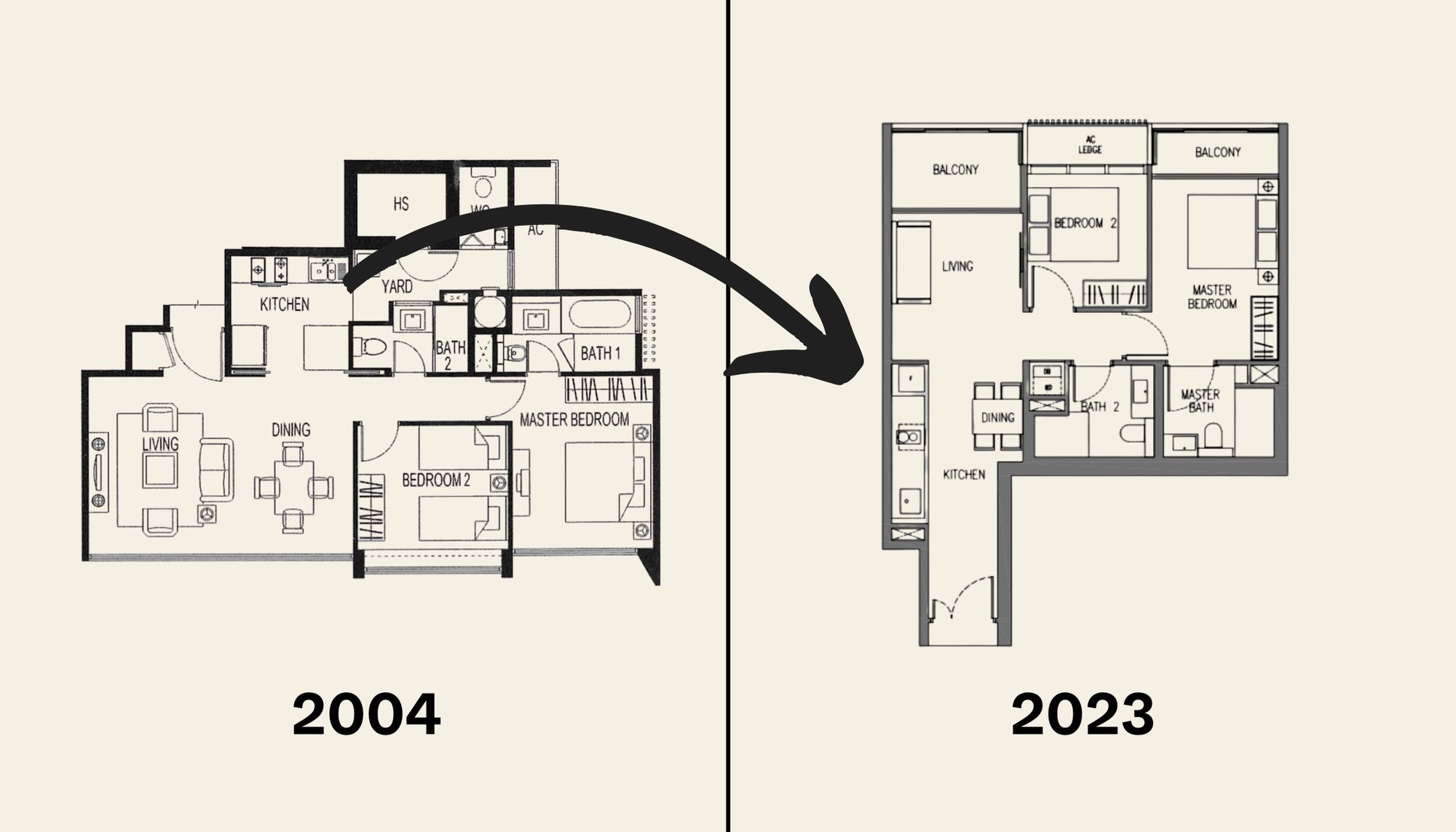
Property Trends The Room That Changed the Most in Singapore Homes: What Happened to Our Kitchens?
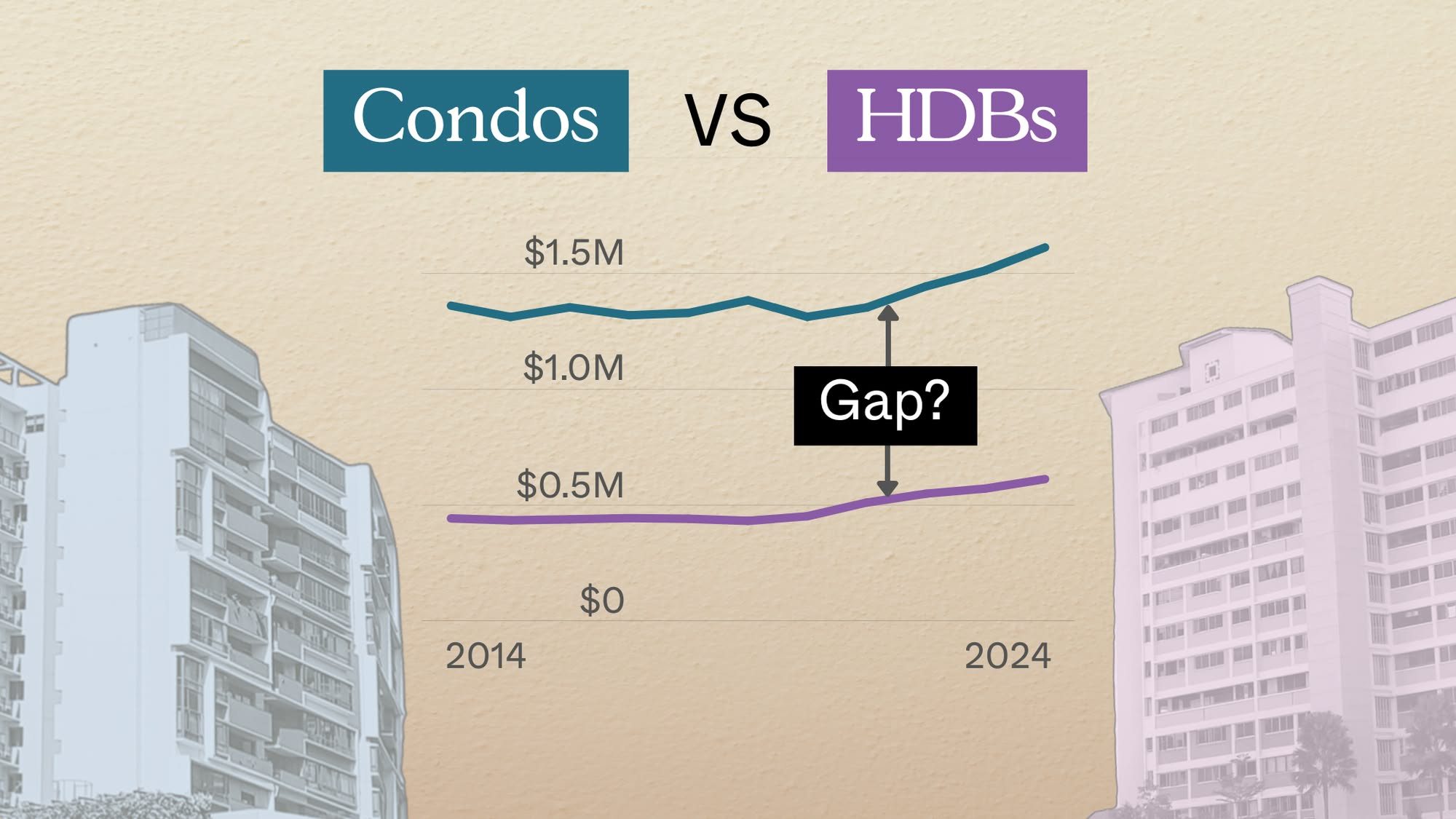
Property Trends Condo vs HDB: The Estates With the Smallest (and Widest) Price Gaps
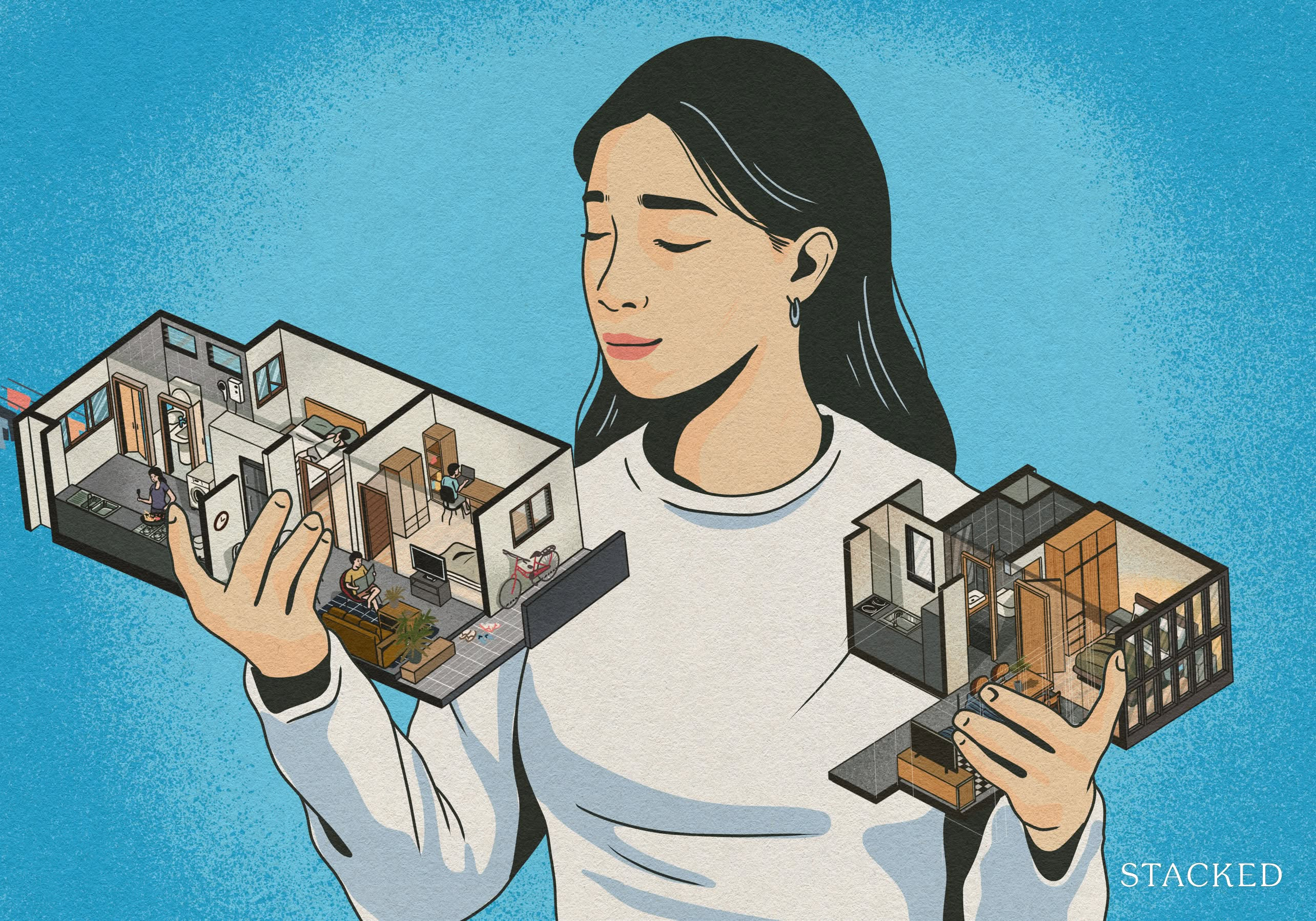
Property Trends Why Upgrading From An HDB Is Harder (And Riskier) Than It Was Since Covid
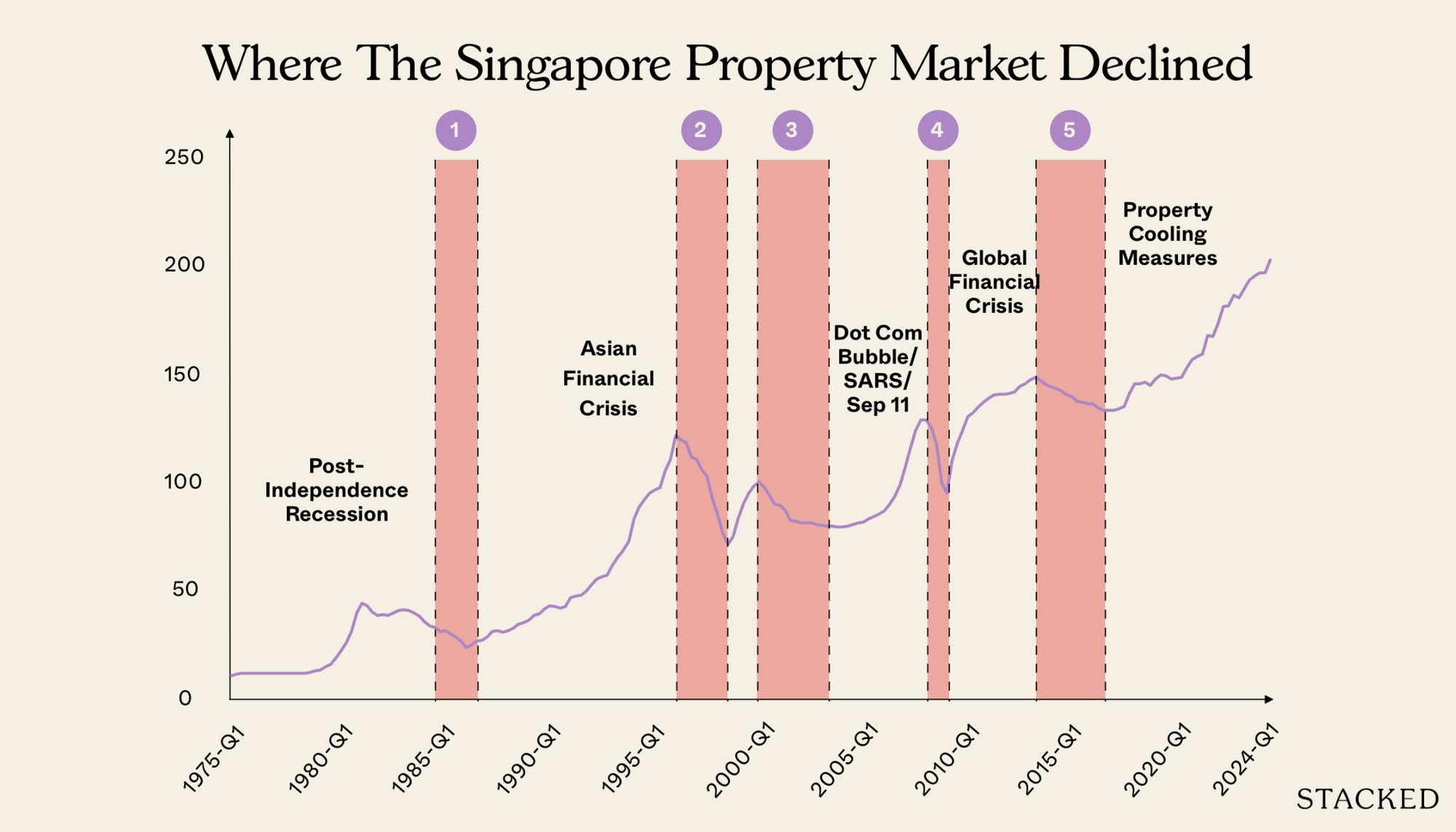
Property Trends Should You Wait For The Property Market To Dip? Here’s What Past Price Crashes In Singapore Show
Latest Posts

Singapore Property News REDAS-NUS Talent Programme Unveiled to Attract More to Join Real Estate Industry

Singapore Property News Three Very Different Singapore Properties Just Hit The Market — And One Is A $1B En Bloc

On The Market Here Are Hard-To-Find 3-Bedroom Condos Under $1.5M With Unblocked Landed Estate Views







































0 Comments